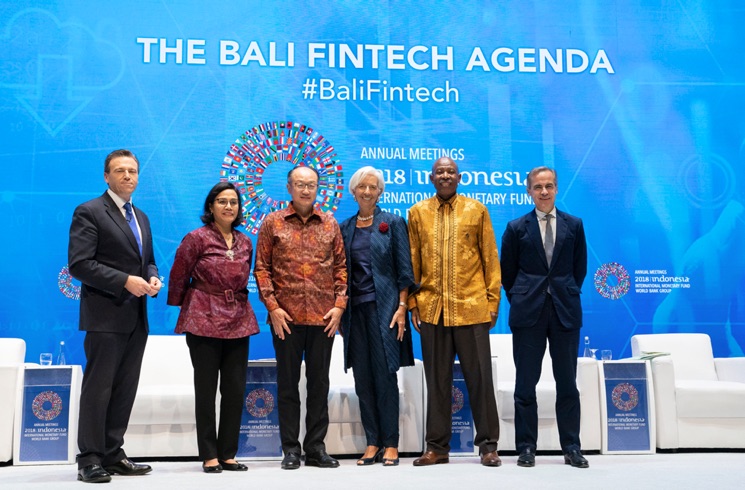Technology is rapidly changing our lives. It is redefining economic models, work relationships, and financial transactions, to name a few examples. Such disruptive power can bring many opportunities, such as greater financial inclusion. But it can also be a source of anxiety, especially for workers at risk of losing their jobs to automation. IMF work has focused on policies that can bridge the digital divide and harness digital dividends.
With as many as 1.7 billion adults globally with no access to financial services, fintech is emerging as a game changer. Nowhere is this more visible than in Africa. The use of mobile money has grown exponentially over the past 10 years, making the region the global leader in mobile money innovation, adoption, and usage. It is also the only region where close to 10 percent of GDP in transactions occur through mobile money. This compares with just 7 percent of GDP in Asia and less than 2 percent in other regions.
Financial innovations, such as crypto assets and blockchain technology, are also piquing the interest of central banks around the world. For example, they are exploring whether a central bank digital currency can be used as legal tender as physical money is now. A related issue is how to treat crypto assets in macroeconomic statistics based on the current statistical standards and classifications, since Bitcoin-like crypto assets and digital tokens without counterpart liabilities do not meet the definition of a financial asset. Fintech is undoubtedly democratizing financial services around the world, but it also comes with inherent risks and challenges. To help countries harness the benefits and manage the risks, the IMF, together with the World Bank, launched the Bali Fintech Agenda in October 2018.
Asia employs 65% of the world’s manufacturing robots

Sources: International Federation of Robotics and IMF staff calculations.
Digitalization is also changing the way firms produce and market goods and services, and its measurement is of critical importance. The IMF is part of the expert group contributing to the Handbook on Measuring Digital Trade.
Just as it is a force for inclusion, technology can be an agent of economic division. One example is the market power conferred by proprietary intangible assets and network effects on highly productive and innovative digitally based companies, generating a “winner-takes-most” dynamic. By changing the way we work, technology can also leave some people behind. New technologies—such as artificial intelligence, automation, and robotics—that can substitute for a broad range of human skills can be disruptive for labor, and especially for women.
Globally, about 180 million female-dominated jobs are at high risk of being displaced. This is because women tend to be employed in more routine-oriented jobs, which are most prone to automation. Our research, however, shows that not all labor is replaceable, and artificial intelligence might transform jobs more than it will make them obsolete. Technological advances boost productivity, which over time creates new jobs and allows incomes and living standards to rise.
So what can countries do to harness the disruptive power of technology? They need policies to facilitate labor reallocation and shorten periods during which labor remains idle. But more fundamentally, countries need to invest in their people and provide them with opportunities. This means more effective public spending on education, making it responsive to market demands and providing opportunities for lifelong learning, along with appropriate redistributive policies. It also means investing in digital infrastructure and upgrading competition frameworks to ensure that the benefits from technology are fairly shared.
Technological advances present incredible economic and social opportunities. But they need to be supported by the right policies to ensure that they bring benefits to all.




